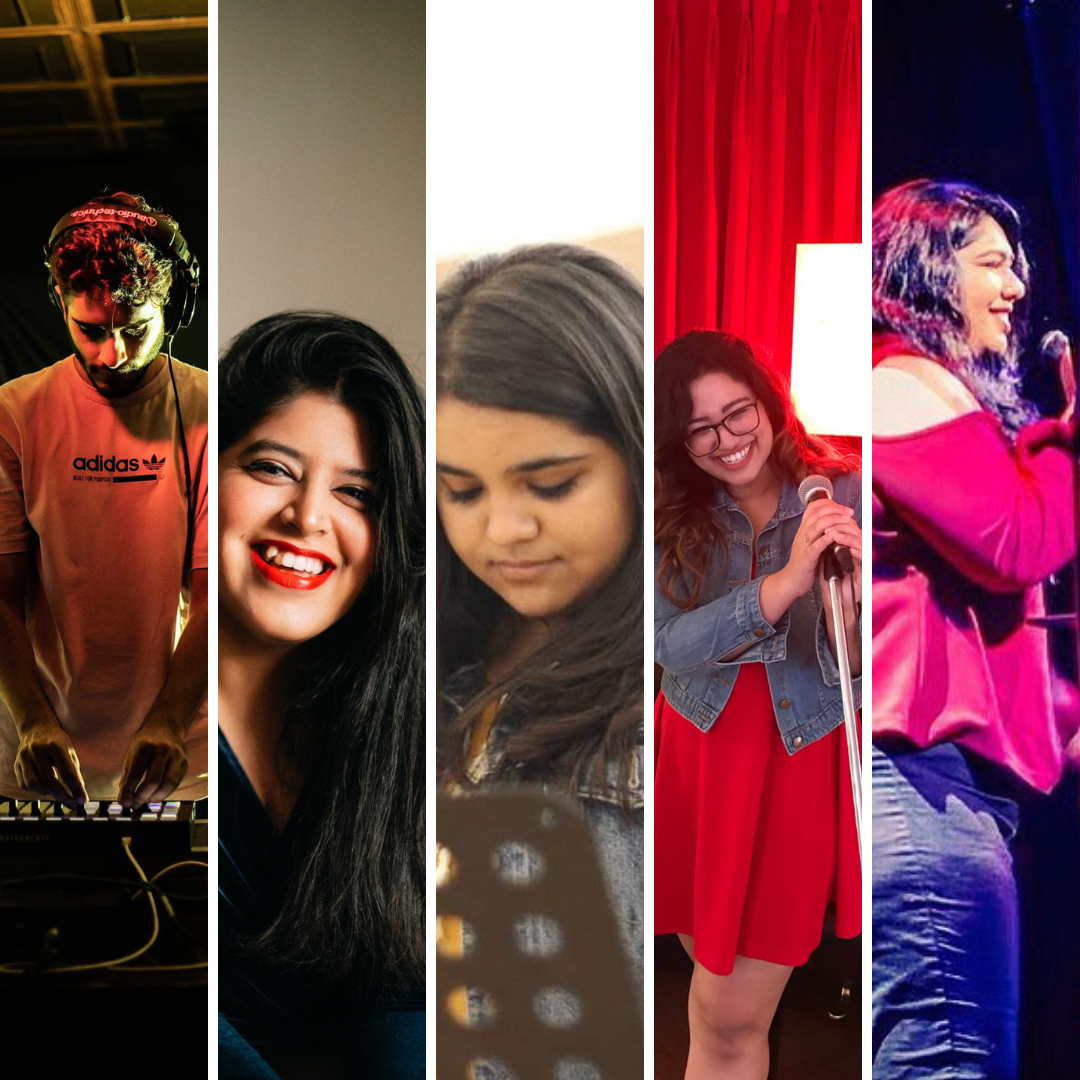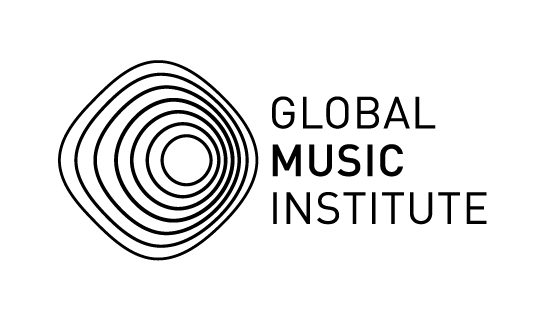
26 Oct In Focus: Music Education with Educators
With the growing formalisation of, and structured approach to music education at the school level, graduates of music programs can now find rewarding career paths as music educators.
Today’s In Focus piece explores the changing face of music education in India at the K-12 level and the optimistic outlook it creates for music professionals.
—–
The findings of a 2015 research study exploring the face of music education in India was dismal. The study found the lack of comprehensive curriculum for music specifically at K-12 level, limited resources dedicated to music learning, while music was largely not perceived as a viable career path. In a country like India with its rich cultural and musical heritage, and a talent pool stretching into millions, the lack of structured music education leaves aspiring musicians with little visibility, and ill-equipped to pursue their passion seriously.
In recent years, however, there has been a marked shift in the attitudes towards music and arts education, with a greater appreciation and acknowledgement for the crucial role it plays in one’s growth and development. The conversations with young music educators and GMI alum: Charita Arora, Ishaan Gandhi, Christina Dayal, Sneha Haldar and Priyana Chauhan, provides insights about the people facilitating a refreshing change, the implications of this shift on the future of the music industry and music education in India, and the promise it holds as a career path for music students.
Turning Tides
 Shifting mindsets – from apprehension to diligence – towards music and arts education is reflected in the recently announced initiatives by the Delhi Government, and some of the top-tier schools across Delhi NCR. In September 2021, the Delhi Government launched a promising new program, ‘Music Bus’- a mobile classroom to teach audio production, graphic design, and filmmaking. Speaking to the Hindustan Times about the initiative, the government said, “the aim is to deliver happiness to children and enable them to discover their potential, with music as a creative tool for transformation.”
Shifting mindsets – from apprehension to diligence – towards music and arts education is reflected in the recently announced initiatives by the Delhi Government, and some of the top-tier schools across Delhi NCR. In September 2021, the Delhi Government launched a promising new program, ‘Music Bus’- a mobile classroom to teach audio production, graphic design, and filmmaking. Speaking to the Hindustan Times about the initiative, the government said, “the aim is to deliver happiness to children and enable them to discover their potential, with music as a creative tool for transformation.”
Additionally, in recent years, some of the premier schools have started to implement a comprehensive music curriculum, as well as bring on board promising young artists as educators. Whilst the trend of adopting a thorough Music Curriculum began with schools affiliated to the International Baccalaureate (IB) program, it has now trickled into top-tier schools across Delhi like GD Goenka Global School, Vasant Valley School, Shiv Nadar School and Pathways School. In some schools, the breadth of curriculum has widened to include skills and concepts ranging from music theory, harmony, instrumental studies, and music production. In others, the pre-existing curriculum for Hindustani and Carnatic Music has been restructured to include effective assessment models to chart a student’s progress.
Musicians are now excitedly donning the hat of formal music educators/facilitators because schools are regarding music education at par with other academic subjects; and simultaneously reimagining what it means to be a professional musician in India. Reflecting on his desire to teach, Ishaan Gandhi said, “music education is taken very seriously where I am teaching. Here, students are encouraged to explore different avenues within music, and look at it through the lens of a researcher, a creator and a performer. They are taught to develop an understanding and respect for different musical cultures and the sociocultural context of different styles of music to become more open-minded, develop communication skills and learn life skills through the study of music.”
Facilitators of Change
The young educators we spoke to are artists in their own right, donning multiple hats as performers, creators, educators, and producers; thus breaking preconceived notions about the rigidity and limitations of the teaching profession. “Nowadays, the scope of engagement is flexible through the contracts offered and we can choose which days we want to come in, giving us time to work on our own creations and personal projects,” said Sneha Haldar. The greater flexibility enables them to strike a balance between educating, and finding fulfilment through creative output.
Balancing multiple professional endeavours is a lesson in the importance of time-management and organisation. Acknowledging the need for balance through time management in such a professional juggle, Sneha said, “It does get overwhelming. Sometimes you have to prioritise teaching work, and at other times you have to take a break by prioritising what is important for you. When i was studying music, i was also working and i learned to balance the two. It takes time to get used to it but once you get it, it balances itself out.”
Working as educators is a crucial pivot point, and a source of financial stability for performing artists, in an otherwise unpredictable and volatile gig economy. “Teaching is an important source of financial stability. Because of the stability it provides, I can better focus on fulfilling creative projects. I can then share the creative experience and industry knowledge I gain from these projects with my students, and be a better teacher. It’s a rewarding cycle,” said Ishaan.
 The rewards of working in music education are varying for different educators. “What draws me most towards teaching is the love, fun and enthusiasm that the students bring. Working as a teacher makes me feel content knowing I am contributing towards the growth of a child and the future of tomorrow,” said Christina. The fulfilment derived from tangibly impacting a young life goes a long way in inculcating a deep sense of purpose, and fuelling motivation. “When a student or parent reaches out to say how much you and your teaching have made an impact on them, it reiterates the whole point,” said Priyana.
The rewards of working in music education are varying for different educators. “What draws me most towards teaching is the love, fun and enthusiasm that the students bring. Working as a teacher makes me feel content knowing I am contributing towards the growth of a child and the future of tomorrow,” said Christina. The fulfilment derived from tangibly impacting a young life goes a long way in inculcating a deep sense of purpose, and fuelling motivation. “When a student or parent reaches out to say how much you and your teaching have made an impact on them, it reiterates the whole point,” said Priyana.
Interacting and engaging with students in a classroom setting is both challenging, and exciting. The joys of collaborative learning, and exchange of perspectives is a source of enjoyment for Charita. “In a classroom setting, there’s a lot of peer to peer learning. It is collaborative, interactive, and they learn better when they learn with each other. It’s a lot of different perspectives enticing curiosity in each other so it’s exciting.”
Online learning during the pandemic has proved to be particularly challenging for educators teaching the youngest cohorts. “Being a primary school teacher, keeping their attention span and generating curiosity is a challenge. One of the aspects we like to cover is choral singing and that aspect is completely missing because we had to adapt the curriculum for online learning.”
Whilst the challenges pertaining to different year levels are varying, “the biggest challenge is to work with each student, in a way that leads to the collective growth of the group,” said Christina. Completing a set curriculum in a limited time frame is a challenge educators rise to everyday. To overcome this, they craft thorough lesson plans to enable engaging classes and encourage effective learning practices.
Delving in the world of music education has been an educational experience in itself for the young creatives, who are learning and growing in their musicality and artistry through the exploration of another facet of their professional identity. The responsibility of imparting knowledge requires them to have a nuanced understanding of their instrument, and musical concepts. Speaking about the symbiotic relationship between teaching, and her creative practice, Christina said, “teaching is all about being a constant learner. You need to keep researching and updating your skills in order to impart better education. Along the way, you will learn from your peers, seniors and especially from your students. As a teacher, I need to constantly learn new techniques and concepts and apply them on myself before presenting them to my students. This helps me grow not only as an educator but also as a performer.”
For others, teaching has reaffirmed their identity as a performer and artist. “Teaching has made me a lot more connected with the fact that I’m an artist, because I’m all the more conscious and aware of the real reason I got into music which wasn’t teaching but performance. I enjoy music education, but I will always be an artist first,” said Priyana. Working together with other music educators is fruitful in connecting musicians and developing strong creative networks. “Through teaching, I have met other music educators with whom I have had the chance to collaborate and exchange ideas; this has transformed me as an artist and helped me find my own musical voice,” said Sneha.
Foraying into the Future
The present changes towards more formalised and structured music education at the K-12 level have long-term implications for the future of young budding musicians, and the music industry. By getting “a head start to their musical, and artistic areas of development” students will build strong musical foundations. “This will not only shape more well-rounded and skilled personalities, but also give them the opportunity to be at par with foreign students and artists. This will level the playing field and help people feel less intimidated by a career in the arts and pursuing music education at higher levels. For the industry, this means more and better musicians,” said Priyana. The creative capacity of these budding musicians will better place them to cement India’s place on the global musical map.
 The discipline and professionalism engrained in students from the school-level has the potential to translate into the establishment of empowering structures, policies, and more professional attitudes at all levels of the creative ecosystem in India. “The Indian music industry is not very organised and that translates into unprofessional attitudes. Currently there are no organised tiers, pay levels, or unions. What education would do is encourage people to become more professional, and encourage them to create systems in place to help artists, educators, and producers to navigate the industry more effectively,” said Charita.
The discipline and professionalism engrained in students from the school-level has the potential to translate into the establishment of empowering structures, policies, and more professional attitudes at all levels of the creative ecosystem in India. “The Indian music industry is not very organised and that translates into unprofessional attitudes. Currently there are no organised tiers, pay levels, or unions. What education would do is encourage people to become more professional, and encourage them to create systems in place to help artists, educators, and producers to navigate the industry more effectively,” said Charita.
As these subtle but impactful shifts in approach and attitudes towards music education continue to gain traction, musicians across the country will be able to actualise their creative potential to lead sustainable, and rewarding professional lives.
By Senjuti Maitra
—
With inputs from GMI Alum currently engaged as music educators across premier schools in Delhi NCR:
Charita Arora: GD Goenka Global School, Gurugram
Christina Dayal: Pathways School, Gurgaon
Ishaan Gandhi: Shiv Nadar School, Noida
Priyana Chauhan: Vasant Valley School, Delhi
Sneha Haldar: Shiv Nadar School, Gurgaon




No Comments